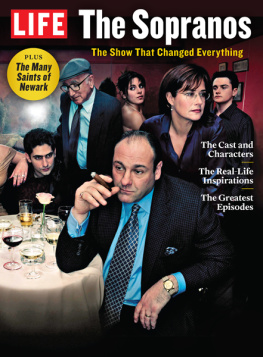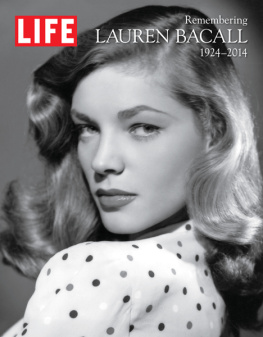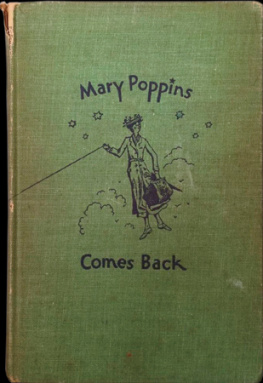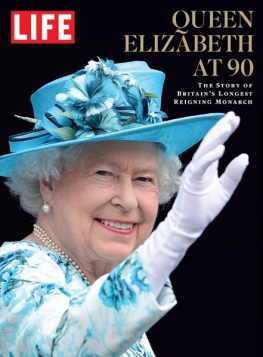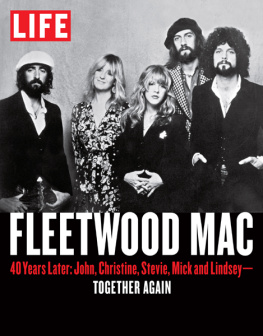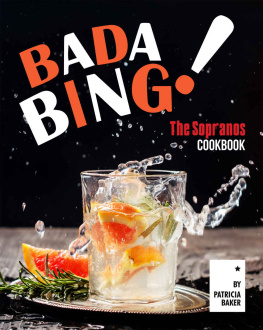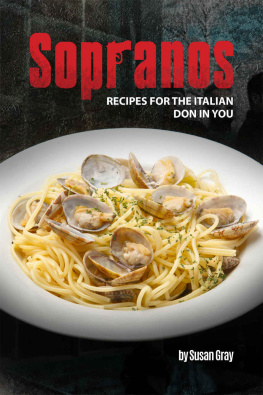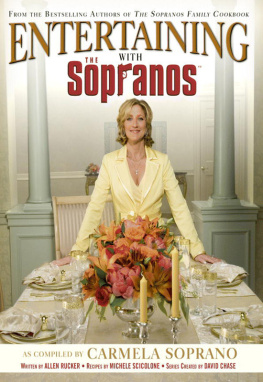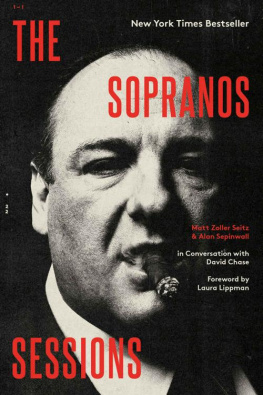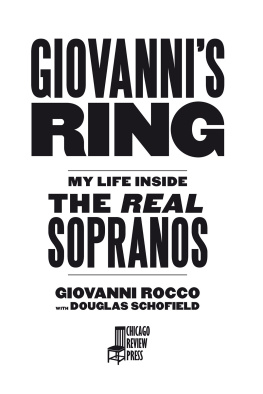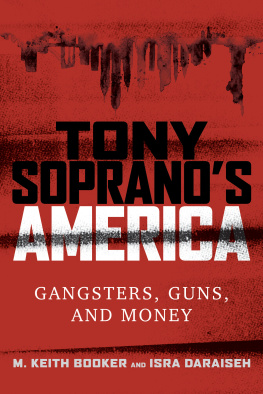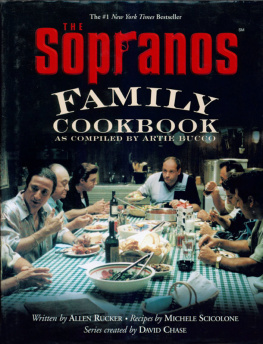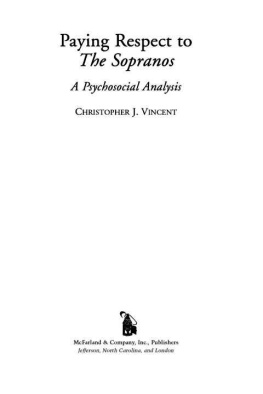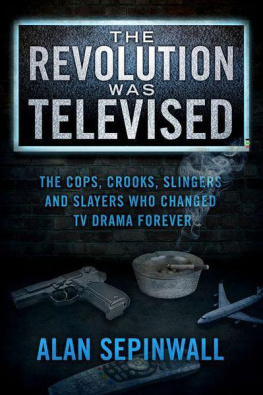

The Sopranos
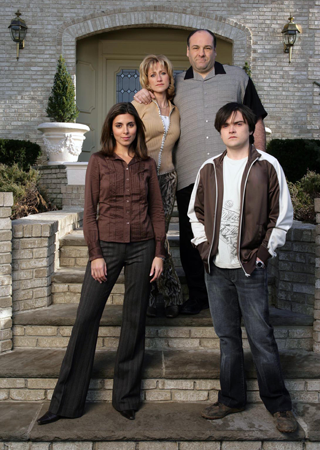
Stars Jamie-Lynn Sigler, Edie Falco, James Gandolfini, and Robert Iler in 2007.
The Show That Changed Television
HBOs The Sopranos helped usher in an era of prestige TV.
BY RICHARD JEROME
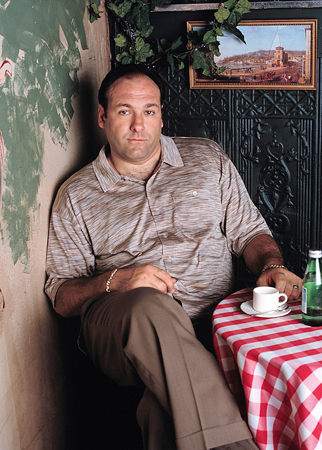
James Gandolfini starred as the antihero you cant help but root for, Tony Soprano.
Fourteen years after The Sopranos ended its six-season run with a famously abrupt blackoutand eight years after its indelible star, James Gandolfini, died of a similarly and infinitely more tragic heart attackHBOs transformational mob family masterpiece lives on. In part, of course, we can thank internet streaming services that guarantee video immortalitybut its also because creator David Chase injected the series into our cultural bloodstream. As countless critics have noted, the richly textured, complex workcentered as it was on a nuanced antiheroredefined high-quality television. Pushing creative and moral boundaries along with audience expectations, it influenced a raft of prestige TV that followed in its wakeincluding Mad Men, Breaking Bad, The Wire, Deadwood, and Game of Thrones (some of which involved writers and directors who worked on The Sopranos ). And the series is now ingrained in the lexicon. It has largely supplanted The Godfather as the go-to mafia reference; Donald Trumps brazenly transactional tenure in the White House earned him plenty of unfavorable comparisons to Tony Soprano. A book by Deborrah Himsel, Leadership Sopranos Style: How to Become a More Effective Boss, holds up the fictional New Jersey mob boss as a model manager, if you overlook a few cold-blooded murders.
Now The Sopranos will gain a whole new kind of currency with the release in October 2021 of a prequel movie, The Many Saints of Newark, starring Jamess son, Michael Gandolfini, as a young Tony coming of age in the titular city during the racially charged summer of 1967. Written by Chase and Lawrence Konner and directed by Alan Taylor, the film will explore the social and familial forces that helped shape a sensitive, impressionable youth into the angst-ridden mobster who riveted audiences from 1999 to 2007.
And what was it, exactly, that made The Sopranos cant-miss TV during those years? For one thing, it was unlike anything that came before. Pre- Sopranos TV was widely dismissed as a medium for programs that didnt ask the viewer to think about anything except what was coming on next, and preferred lovable characters who didnt change and had no inner life, write critics Matt Zoller Seitz of New York magazine and Alan Sepinwall of Rolling Stone both of whom covered the show for the Newark Star-Ledger in their 2019 book, The Sopranos Sessions. The networks imposed rigid standards and rules when it came to language, story lines, sex, violence, race, and other contentcontroversial subject matter was anathema, and nobody wanted to rock the boat, or, heaven forbid, alienate the sponsors.
The Sopranos said goodbye to all that. Granted, it wasnt the first series to push the envelope. There was All in the Family, with its humanized bigot, Archie Bunker; the morally complex Hill Street Blues ; and other unconventional fare, such as Twin Peaks and the prison series Oz. But as Seitz and Sepinwall point out, The Sopranos was the first show to break all the rules and still become a massive, enduring hitone widely used as a template. Many of the series most innovative features have become routine conventions of the small screenantiheroic or even downright villainous central characters, serialized narrative arcs instead of discrete episodes, and the recognition that in real life there are moral gray areas and unresolved plots.
For the uninitiatedthose who arent made viewers, so to speakChases saga follows Tony Soprano, the bearish boss of North Jerseys DiMeo crime family and patriarch of his own upper-middle-class household, and how he balances (or doesnt) an often-violent professional life with the dynamics of his family. That would be Tonys long-suffering, compartmentalizing wife, Carmela ( Oz alum Edie Falco), and two adolescent kidsIvy Leaguebound daughter Meadow (Jamie-Lynn Sigler) and perpetually confused son Anthony Jr. (Robert Iler). Also in the mix are Tonys raging sister Janice (Aida Turturro) and troublesome eldersnightmarish mother Livia (Nancy Marchand) and Corrado Junior Soprano (Dominic Chianese), Tonys shrewd and suspicious mafioso uncle. These characters interweave with Tonys criminal crew, including his hotheaded nephew Christopher (Michael Imperioli) and guys with names like Paulie Walnuts, Big Pussy and Bobby Bacala Baccalieri, as well as enemy mobsters, FBI agents, and Tonys tag team of high-maintenance mistresses. Under constant stress from all of these and tormented by demons from his childhood, Tony has panic attacks and lands in psychotherapy, under the care of Dr. Jennifer Melfi (Lorraine Bracco).
Thats the general outline, but The Sopranos is so much moreit contains multitudes. Times of London critic Ben McIntyre told the BBC in 2007 that the series covered all the great elements of drama like ShakespeareTony Soprano really is King Lear. The show's themes are the great themes of literature. The Sopranos, McIntyre noted, depicted fathers fighting sons, kings controlling kingdoms, treachery, loyalty, love, guilt, revenge... everything, really, adding that it was about a bad man with good in him, trying to understand how he works. McIntyre didnt stop there. He also compared The Sopranos to the works of Charles Dickens, likening the show to a huge, sprawling novel with small cameo parts that pull you along through it.
Indeed, almost all the shows characters are fleshed out. Tony as boss is by turns monstrous and murderous, reasonable and pragmatic; off the job, we see him engaged in feverish extramarital sex, then having a tender heart-to-heart with his wife or kids, or baring his childhood pain to his shrink. Almost everyone else also comes off as a multidimensional human, even those who make brief appearancesa psychopathic capo here, a crooked cop there. Though graphically violent on occasion, with many moments of high drama, The Sopranos has also been describedby Gandolfini, among othersas essentially a dark comedy. The scripts are generously leavened with humor high, low, broad, and subtle. The characters bicker and banter, sometimes over Seinfeldian minutiae; theres irony and incongruity, mangled literary references, and mobster malapropisms. Even some of the more gruesome momentsChristopher crossing himself while disposing of a dismembered mobsters head, for exampleare so over-the-top you may be provoked to laugh.
Though graphically violent on occasion, with many moments of high drama, The Sopranos has also been described as essentially a dark comedy.
The years since The Sopranos finale have brought heightened awareness when it comes to issues of race and gender. And the series has drawn understandable criticism. As The Many Saints of Newark explores, Tony and his pals spent their formative years in the racially incendiary crucible of Newark, and their exodus to the suburbs was part of the great white flight from the city. The mobsters racism is often on display as they fling casual slurs or try to pin their crimes on African Americans.
Next page
